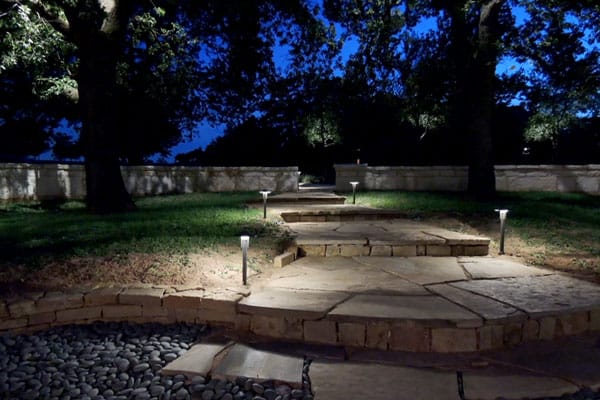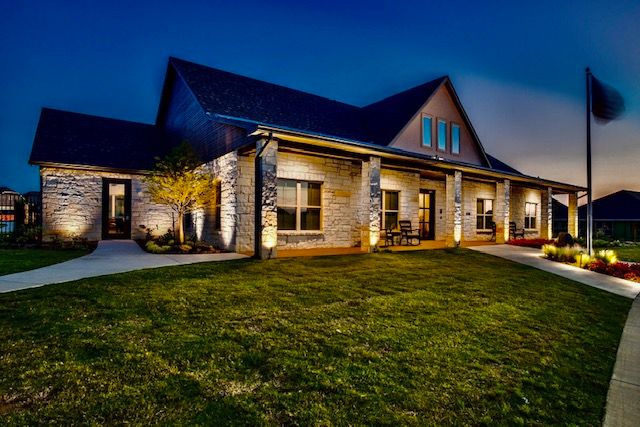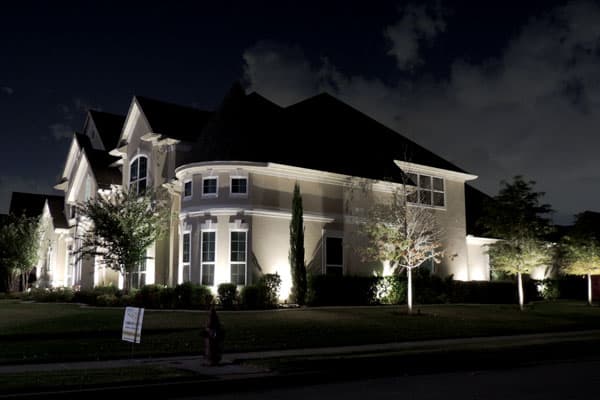
Table of contents
Outdoor lighting can give you the freedom to enjoy your property whenever you’d like, the peace of mind of added security, and the reality of your dream backyard. However, it also comes with its own set of problems. Because it is in the great outdoors, outdoor lighting can be damaged by pests and exposure to the elements, resulting in malfunctions. These problems might destroy some of the investments you’ve made to beautify your prosperity and, in extreme cases, they may even increase the danger to your family.
To ensure you maximize the benefits and minimize the risks, it’s important to know how to identify issues with your outdoor lighting and prevent these problems from happening in the first place. Read on to learn more about how to resolve a few of the most common problems.
How to Handle Failing Connectors
As their name implies, lighting connectors connect your lights to their power supply. Properly designed outdoor lighting will have the connectors placed in protective spots that keep them away from the elements. This prevents them from being damaged by water and poor weather conditions. However, if the connectors are exposed to the elements, they may begin to fray, resulting in an electrocution and fire hazard.
In some cases, the types of connectors that are used are the problem. Connectors that put holes in the protective covering over wires during installation leave the wiring inside vulnerable to water damage. These wires can end up being exposed to water when it rains or when you use a sprinkler to water your lawn. When wiring is exposed to water, there is an increased risk of a short circuit which can lead to fires or electrocution.
Only a professional outdoor lighting specialist should handle problems with your lighting connections given the risks of electrocution and fire. Potential solutions include replacing any frayed or broken connectors and adding weatherproofing protectors to ensure that there is no further damage to your system.
Protecting Your Outdoor Lighting From Bugs and Animals

Small bugs (especially fire ants) are drawn to electricity and will often build their mounds around electrical fixtures. Additionally, squirrels and rabbits are known for chewing through exposed wires. These pests can get inside outdoor lighting fixtures, especially those that are installed in the ground even if they are tightly sealed. Pests are also able to get into transformers for outdoor lighting systems, which can cause considerable damage. If you are experiencing a pest problem, you have a few options for solutions.
First, you could invest in some pest control. If you’d rather try to handle the problem yourself, there are also some DIY options to handle fire ants. For example, you can use straight white vinegar and saturate the colony. The acid in the vinegar will kill the ants and disrupt scent trails which prevents other ants from following the same path towards known food.
You could also schedule a lightning maintenance check. Your outdoor lighting experts can look over your electrical fixtures and ensure that the pests haven’t caused too much damage. Once we get a clear understanding of the damage, we can work to either repair or replace those elements and so that your lights will be as good as new.
Burnt-Out Light Bulbs
LEDs last a long time, but unfortunately, they do not last forever. If you already have the right bulb size and wattage, then changing the broken bulb shouldn’t be too much of a problem. However, if your bulb went out due to age and not damage, it is important to consider that your other lights may be about to go out soon as well. In that case, replacing the lights as a whole rather than individual bulbs may be more cost- and time-effective.
If burned-out bulbs are a constant problem for you, you have a different issue on your hands. Outdoor lighting bulbs can burn out too often if they’re installed improperly. For example, if the voltage going to each bulb differs, you’ll end up with bulbs of varying degrees of brightness that tend to burn out frequently. Outdoor lights that rely on a multi-tap transformer can also be a problem. If one bulb burns out, the rest of the bulbs can be hit with an excessive amount of voltage. This causes these bulbs to burn out as well.
To resolve these issues, or even if you are simply unsure of the wattage of your lights, you can always call your trusted lighting professionals to change the bulbs for you. We can also help you figure out whether the issue is a quick fix or something more involved so that you can resolve the issue the first time instead of having to deal with repair after repair that will add up.
Worn Fixture Seals and Lighting Socket Corrosion Solutions

Most standard outdoor lighting fixtures include the bulb socket and contain weatherproof seals. The seals are made of rubber which can deteriorate over time due to age and exposure to heat and water. Once the seal fails, your socket will be exposed to the elements and be more likely to corrode. Keep in mind that corrosion is also more likely to form when bad connectors cause the wiring inside to be exposed to water. Here are some possible solutions to avoid this damage.
First, you can invest in lighting fixtures that are designed and arranged to minimize trapped moisture. More efficiently draining water can help prevent socket corrosion. Additionally, getting weather guards to further waterproof them can double this security.
If you notice that there is already some moisture buildup in your fixture, your seal likely needs to be replaced. If the socket is already corroded, then it will need to be replaced as well. This is true even if the light hasn’t failed yet.
Routine Maintenance Can Protect Your Outdoor Lighting
If you need dependable outdoor lighting for your home, contact Creative Nightscapes. With our superior workmanship and high-quality lighting products, you can rest assured that your outdoor lighting systems will stay in great condition for a long time. We also offer maintenance contracts to help you keep your system working perfectly. Don’t try to find your way out of the dark alone; contact our team to schedule a consultation today!
